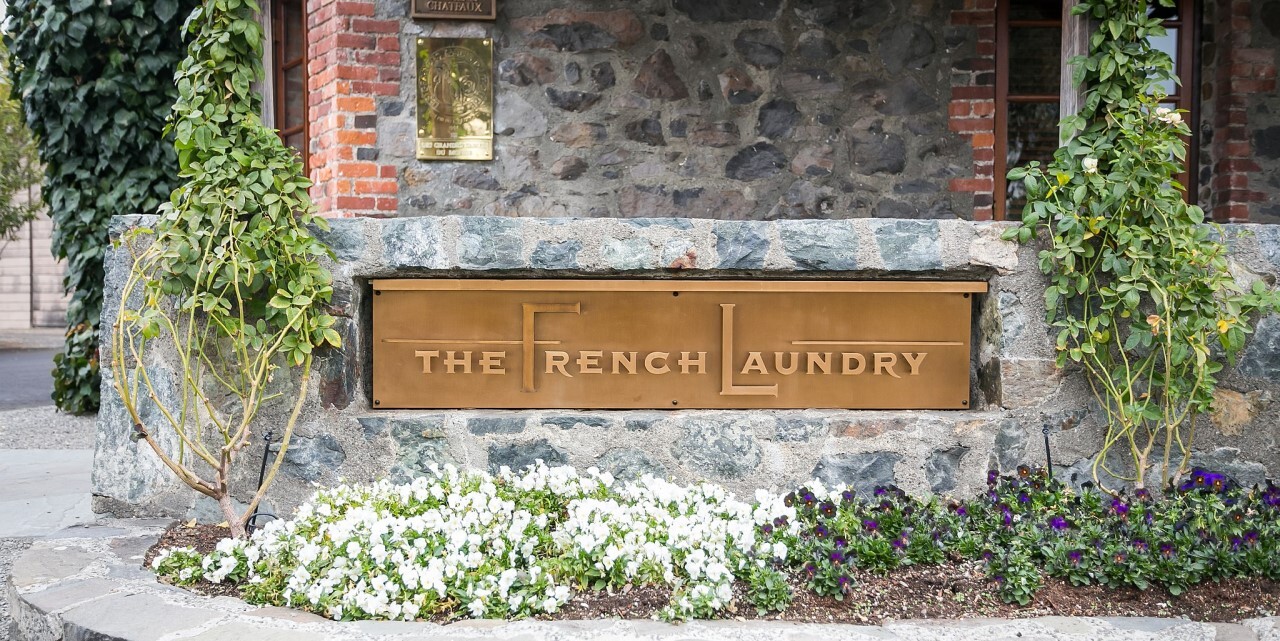A federal appeals court has asked the California Supreme Court to weigh in on the question of whether insurance companies can be required to compensate restaurants for losses from Covid-related closures, including from shutdowns ordered by Gov. Gavin Newsom.
And at the heart of the dispute is French Laundry, one of the state’s most exclusive restaurants and the site of a Covid-era dinner party credited by many with giving traction to the ultimately ill-fated effort to recall Newsom.
For nearly three years, French Laundry Partners has been in court against its insurer, Hartford Fire Insurance Company.

California Gov. Gavin Newsom
French Laundry Partners operates two restaurants in Napa County. Under chef Thomas Keller, the namesake restaurant French Laundry has earned three Michelin stars and has regularly been recognized as one of the best restaurants in the world since the mid-1990s.
The company also operates the Bouchon Bistro, all in Yountville.
In early 2020, at the onset of the Covid-19 pandemic, Newsom ordered the French Laundry’s dining rooms closed, along with all other indoor dining throughout California.
While French Laundry and other restaurants were allowed to reopen in somewhat limited fashion later in 2020, like nearly all restaurants in 2020, French Laundry suffered steep losses.
They filed a claim with their insurers for coverage, seeking to recover some of the lost revenue.
When Hartford Insurance denied the claim, French Laundry filed suit in state court. The lawsuit asked the courts to declare Hartford was obligated to reimburse some of the losses under several provisions of its policy.
In denying the claim, Hartford pointed to a so-called “virus exclusion” in the policy which states the insurer “will not pay for loss or damage caused directly or indirectly” by the “presence, growth, proliferation, spread or any activity of” a virus.
However, French Laundry notes the policy states that exclusion doesn’t apply “to coverage otherwise provided by the ‘Fungus, Wet Rot, Dry Rot, Bacteria and Virus – Limited Coverage’ provision of the policy.”
French Laundry has argued that allowing Hartford to escape that coverage would essentially “render the limited virus coverage illusory.”
Hartford took the case to federal court, where a district judge ruled the virus exclusion should prevail in the case and prevent French Laundry from pressing its claim.
The ruling was similar to hundreds of other cases across the country, where insurers have routinely prevailed on the question of whether they need to pay restaurants and other businesses who believed they were insured against the often devastating losses they suffered when they were ordered closed early in the pandemic, and often kept closed or severely restricted, primarily by Democratic governors like Newsom in California, well into 2021.
In a twist of fate, Newsom’s own political career took a big hit when he was photographed at a well-attended dinner party in honor of a longtime political ally at French Laundry in late 2020. Newsom attended the event, even while he routinely and loudly derided those who chose to gather amid the pandemic. The event served as a booster for efforts by political opponents to secure more than 1.6 million signatures from California voters on a petition to recall the governor. Opponents asserted Newsom’s behavior didn’t match his public rhetoric, in which he demanded regular Californians sacrifice, while he and his social circle carried on with a semblance of normal life.
Ultimately, the recall effort failed, when Newsom prevailed at the polls.
But in the meantime, French Laundry and other businesses continued their efforts to secure coverage from their insurers for the losses they suffered under Newsom’s orders.
After losing in district court, French Laundry appealed, asking the U.S. Ninth Circuit Court of Appeals to overturn the lower court’s ruling.
However, after collecting arguments from both sides, a three-judge panel on the Ninth Circuit decided it couldn’t yet decide the issue. They said California state law governs the insurance policy’s terms and exclusions. The Ninth Circuit judges said they do not believe state courts have firmly answered questions around the policy exclusion.
To get that answer, the Ninth Circuit judges sent the question to the California Supreme Court, asking the state high court to weigh in.
“In California, and indeed nationwide, a multitude of COVID-19-related insurance cases are moving through the judicial process,” the Ninth Circuit judges wrote. “Courts at both the state and federal level are grappling with the application of California insurance contract interpretation law to coverage for losses from business shutdowns due to government closure orders in response to COVID-19.
“While both state and federal courts have published opinions providing some guidance, there remains much uncertainty as to how California law applies in many scenarios (such as the scenario presented in this case).”
The California Supreme Court is not obligated to take up the question, but the Ninth Circuit said it was inviting the state high court to do so to “gain some efficiencies” in resolving the lingering questions over Covid-related insurance coverage, in the French Laundry cases and the many others like it.
The Ninth Circuit panel included Circuit Judges Consuelo M. Callahan, Ryan D. Nelson and Holly A. Thomas.
French Laundry is represented in the matter by attorneys John N. Ellison, of the firm of Reed Smith, of New York; and Jennifer Perez, of Gauthier Murphy & Houghtaling, of Metairie, Louisiana.
Hartford Insurance is represented by attorneys Tadhg Dooley, Jonathan M. Freiman and David R. Roth, of Wiggin and Dana, of New Haven, Connecticut; and Johanna Dennehy and Sarah Gordon, of Steptoe & Johnson, of Washington, D.C.
